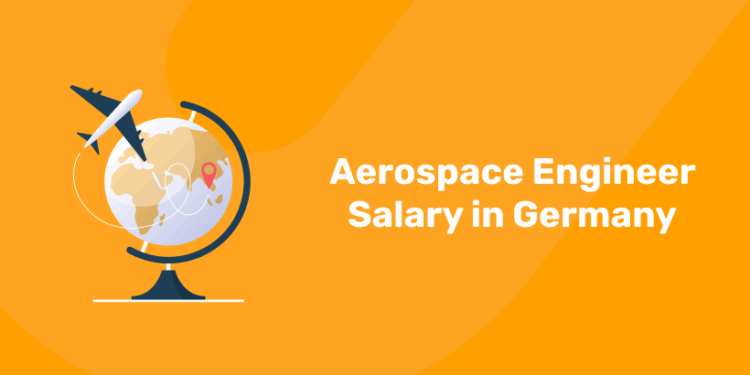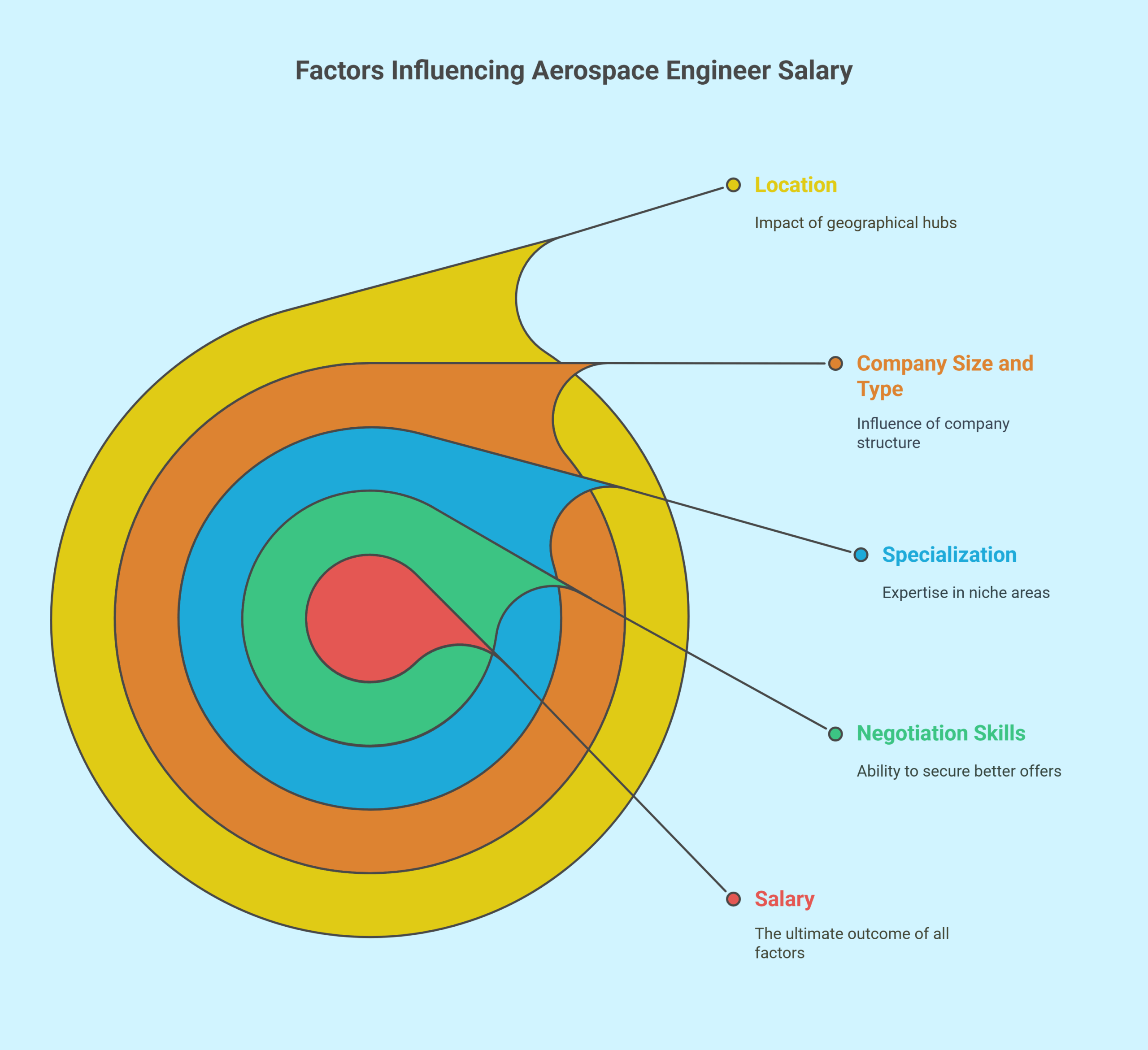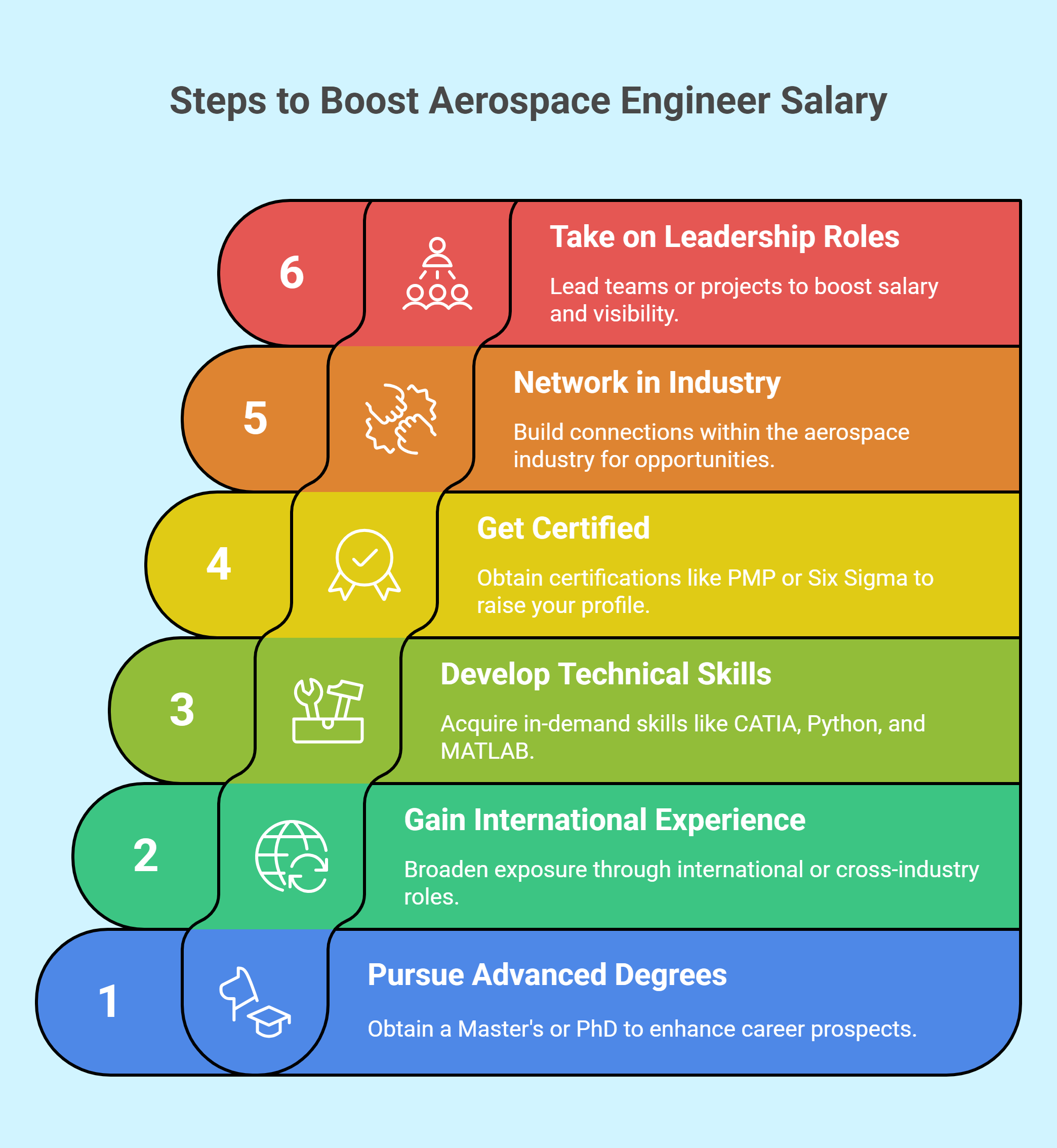Table of Contents
Germany is known for its strong engineering excellence. The Aerospace Engineer salary in Germany attracts global talent each year. Engineers here design planes, satellites, and defense systems. Their work powers industries and space missions worldwide. With high demand, salaries remain very competitive. Aerospace professionals enjoy respect and rewarding career paths. Germany values skilled engineers and pays them accordingly.
Choosing the right country can shape your career. Germany offers stability, growth, and global exposure. Its aerospace sector is modern and fast-growing. Engineers find excellent jobs in major German cities. In this blog, explore everything about pay and perks. Let’s understand how much aerospace engineers earn in Germany.
Master the German Language with Entri App! Click Here for Free Trial Class!
Aerospace Engineer Salary in Germany: Introduction
Germany has a strong and growing aerospace engineering industry. It is home to leading companies like Airbus and DLR. Engineers here work on aircraft, satellites, and defense systems. They enjoy high pay, strong job security, and global exposure. Germany values skilled professionals and invests heavily in aerospace innovation. The demand for aerospace engineers is rising every year. This makes Germany a top choice for engineering careers.
This blog covers the following key topics:
1. Aerospace Engineer Salary in Germany
-
Average salary across entry, mid, and senior levels
-
Salary range and currency (EUR) used in Germany
2. Factors Influencing Salary
-
Experience level and education background
-
Location, company type, and specialization field
3. City-Wise Salary Comparison
-
Top cities with highest aerospace engineer salaries
-
Reasons for salary differences across locations
4. Benefits and Career Outlook
-
Perks, job demand, and future industry trends
-
Tips to boost salary and career growth in Germany
Overview of Aerospace Engineer Salary in Germany
1: How do you say "Good Morning" in German?
Germany offers high salaries for skilled aerospace engineers. Engineers here work in aviation, defense, and space industries. The average aerospace engineer salary Germany is very competitive. Salaries vary based on experience, role, and location. All salary figures mentioned below are in € EUR annually. Engineers also receive bonuses and additional job-related benefits. Let’s explore how salaries differ across various career stages.
Average Aerospace Engineer Salary in Germany
-
Overall Average Salary: €65,000 per year
-
Based on full-time roles across Germany
-
Excludes bonuses and special allowances
Salary by Experience Level
| Experience Level | Average Annual Salary (€ EUR) |
|---|---|
| Entry-Level (0–3 yrs) | €45,000 – €55,000 |
| Mid-Level (3–7 yrs) | €60,000 – €75,000 |
| Senior (7+ yrs) | €80,000 – €100,000+ |
-
Entry-level includes fresh graduates and junior engineers
-
Mid-level includes project engineers and technical leads
-
Senior level includes managers and research specialists
Key Salary Facts
-
Aerospace engineers earn more with experience
-
Larger companies often pay higher than startups
-
Salaries are highest in cities like Munich and Hamburg
The average aerospace engineer salary Germany reflects global standards. This makes Germany a top destination for aerospace careers.
Master the German Language with Entri App! Click Here for Free Trial Class!
Free German A1 Mock Tests – Powered by AI!
Test your skills on our interactive platform. Get instant feedback from our AI to help you communicate better and track your progress. Start your free German mock test now.
Test Your German A1 for FreeFactors Influencing Aerospace Engineer Salary
Several factors influence the salary of aerospace engineers in Germany. Your pay depends on experience, education, location, and job role. Company size and specialization also play a major role. Negotiation skills can impact your salary offer significantly too. Understanding these factors helps you plan your career better.
Let’s break down each salary factor in detail below.
Experience Level
-
Entry-Level (0–3 years): Freshers and junior engineers
-
Salary starts around €45,000 per year
-
Roles include technical support and documentation
-
Limited responsibility but high learning potential
-
-
Mid-Level (3–7 years): Skilled project engineers
-
Salary ranges between €60,000–€75,000 annually
-
Involves team coordination and complex design tasks
-
Increased ownership and client communication
-
-
Senior-Level (7+ years): Leads and technical experts
-
Salaries exceed €80,000 per year
-
Responsible for innovation and system development
-
Often manage entire departments or research teams
-
Gaining experience boosts salary and professional responsibilities quickly. Experience is one of the strongest salary influencers in Germany.
Education and Qualifications
-
Bachelor’s Degree: Base level qualification for most jobs
-
Master’s Degree: Adds €5,000–€10,000 to base salary
-
PhD: Needed for research roles, can exceed €100,000
-
Certifications: PMP, EASA, Six Sigma boost salary offers
-
Software Skills: MATLAB, CATIA, Python often preferred
Location (City-Wise Breakdown)
| City | Average Salary (€ EUR/year) |
|---|---|
| Munich | €70,000 – €90,000 |
| Hamburg | €65,000 – €85,000 |
| Bremen | €60,000 – €75,000 |
| Stuttgart | €65,000 – €80,000 |
| Berlin | €58,000 – €72,000 |
| Frankfurt | €60,000 – €78,000 |
-
Munich and Hamburg pay the highest salaries
-
Berlin and Bremen offer lower living costs
-
Salaries reflect both demand and cost of living
Company Size and Type
-
Large Companies (Airbus, DLR, MTU Aero Engines)
-
Salaries: €65,000 – €100,000+
-
Offer bonuses, benefits, training, and travel
-
-
SMEs and Startups
-
Salaries: €50,000 – €70,000
-
Flexible roles, faster promotions, smaller teams
-
Aerospace companies Germany salaries depend heavily on size and scope.
Specialization
| Specialization | Average Salary (€ EUR/year) |
|---|---|
| Propulsion Systems | €70,000 – €100,000 |
| Avionics & Electronics | €60,000 – €85,000 |
| Aircraft Structures | €58,000 – €80,000 |
| Space Systems | €65,000 – €95,000 |
| Aerodynamics/CFD | €60,000 – €90,000 |
-
Specialized roles command higher salaries
-
Space systems and propulsion pay the most
Negotiation Skills
-
Research industry salary standards before applying
-
Highlight unique skills and past achievements
-
Always negotiate before signing the offer
-
Multiple offers give better leverage in talks
-
Confidence and preparation help during interviews
Mastering these areas can increase your salary significantly. Use this guide to make informed career decisions in Germany.
Cost of Living in Germany for Aerospace Engineers
Aerospace engineer salaries in Germany are highly competitive. However, living costs vary across cities and affect savings. Understanding expenses helps you manage your salary wisely. Major cities have higher costs than smaller towns. Let’s explore the cost of living across Germany’s top regions. This section will help you plan better before moving.
Housing and Rent
-
Rent is the biggest monthly expense for engineers
-
Munich: €1,200+ for a one-bedroom apartment
-
Berlin: €900+ for a similar apartment
-
Bremen/Stuttgart: Around €800–€1,000 monthly
-
Smaller cities have lower rental costs and utilities
-
Shared apartments help reduce housing expenses
Food and Groceries
-
Monthly groceries: €200–€350 per person
-
Dining out occasionally costs €10–€20 per meal
-
Cheaper options include canteens and takeaway food
-
Local markets offer better prices than supermarkets
Transportation
-
Public transport pass: €49–€70 monthly
-
Most engineers use trams, trains, or bikes
-
Some companies offer travel subsidies or free passes
Utilities and Internet
-
Utilities: €150–€250 monthly for two people
-
Internet plans: €30–€50 per month
-
Bundled plans help reduce extra charges
Cost vs. Salary Balance
-
High salaries offset high city living expenses
-
Entry-level engineers manage with shared housing
-
Mid- and senior-level roles allow better savings
-
Smaller cities help increase disposable income
-
Budgeting helps manage salary efficiently
A good salary ensures comfort despite higher living costs. Planning your expenses boosts savings and financial security.
German Aerospace Job Market Outlook
Germany has a strong and stable aerospace job market. It ranks among the top aerospace hubs in Europe. The industry includes civil aviation, space, and defense sectors. German companies need skilled aerospace engineers more than ever. This demand creates long-term opportunities for global professionals.
Let’s explore the outlook for aerospace jobs in Germany.
Current Demand for Aerospace Engineers
-
Germany faces a shortage of skilled aerospace workers
-
High demand in design, testing, and production roles
-
Engineers with software and automation skills are preferred
-
Jobs available in both public and private sectors
-
Global talent is welcome in many German firms
Key Sectors Driving Demand
-
Commercial Aviation
-
Aircraft design and system development roles available
-
Airbus and Lufthansa Technik are major employers
-
-
Defense and Security
-
Roles in drones, navigation, and military aircraft
-
Strong demand for research and control system experts
-
-
Space Exploration
-
DLR and OHB recruit engineers for satellite missions
-
Growing focus on planetary and orbital research
-
-
R&D and Innovation
-
Focus on AI, green tech, and future mobility
-
Engineers needed for simulation and material development
-
Future Trends in the Industry
-
Sustainability
-
Push toward low-emission aircraft and eco-friendly tech
-
Engineers needed for fuel efficiency research
-
-
Digitalization
-
Increased use of AI and digital twins
-
Strong demand for data-driven design specialists
-
-
Autonomous Systems
-
Research in self-flying vehicles and control systems
-
Collaboration with AI and robotics experts rising
-
Germany’s aerospace job market is future-focused and expanding. Engineers can expect exciting roles and long-term growth prospects.
Free German A1 Mock Tests – Powered by AI!
Test your skills on our interactive platform. Get instant feedback from our AI to help you communicate better and track your progress. Start your free German mock test now.
Test Your German A1 for FreeBenefits and Perks for Aerospace Engineers in Germany
Aerospace engineers in Germany enjoy more than just high salaries. They receive a wide range of benefits and perks too. These extras make jobs attractive and careers more rewarding. Many perks are mandated by law, others are company-specific. Let’s explore the common benefits aerospace engineers receive in Germany. These rewards support both personal and professional well-being.
Health Insurance and Healthcare
-
Public health insurance is included in all full-time jobs
-
Employers cover around 50% of insurance contributions
-
Private insurance available for higher income groups
-
Healthcare includes doctor visits, emergency care, and medications
-
Dependents also receive full health coverage
Pension and Retirement Plans
-
Mandatory pension scheme for all working employees
-
Employers and employees both contribute to the fund
-
Some companies offer extra retirement savings plans
-
Engineers can also open private pension accounts
Paid Time Off and Holidays
| Leave Type | Average Days Per Year |
|---|---|
| Annual Leave | 25 – 30 days |
| Public Holidays | 10 – 13 days |
| Sick Leave | Paid with doctor’s note |
| Parental Leave | Available with state support |
-
Paid leave is legally guaranteed in Germany
-
Sick leave is covered by insurance and employer
-
Parental leave includes job protection benefits
Bonuses and Incentives
-
Annual bonuses based on performance and company profits
-
Some roles offer project completion bonuses
-
Engineers in R&D may receive innovation incentives
-
Stock options may be available in large companies
Company Car and Travel Benefits
-
Management roles may come with company-provided cars
-
Travel expenses are often reimbursed by employers
-
Some companies offer fuel cards or public transport passes
Professional Development and Training
-
Companies support continued learning and upskilling
-
Funding for courses, certifications, and conferences
-
Internal workshops on latest aerospace tools and tech
-
Engineers are encouraged to pursue lifelong learning
Germany ensures a healthy work-life balance for engineers. These benefits support long-term career satisfaction and stability.
Master the German Language with Entri App! Click Here for Free Trial Class!
How to Boost Your Aerospace Engineer Salary in Germany
Boosting your aerospace engineer salary in Germany is very possible. You need the right mix of skills, learning, and strategy. Engineers who upskill and specialize earn significantly more. Building experience and visibility can also open better roles. Let’s explore simple ways to increase your salary in Germany. Apply these steps to move toward higher compensation and growth.
Pursue Advanced Degrees
-
Master’s Degree increases chances for higher-level roles
-
PhD helps enter research or academic institutions
-
Many companies prefer advanced degrees for promotions
-
German universities offer part-time and English-taught programs
Gain International or Cross-Industry Experience
-
Experience abroad can add €10,000+ to salary
-
Foreign internships make your profile more competitive
-
Aerospace knowledge from defense or automotive fields is valued
-
German companies reward international project experience
Develop In-Demand Technical Skills
-
Learn Python, MATLAB, and C++ for simulations
-
Tools like CATIA, ANSYS, and SolidWorks are essential
-
Knowledge of AI, robotics, or autonomous systems adds value
-
Engineers with software and digital skills earn more
Get Certified in Key Areas
-
PMP or Six Sigma boosts project roles and pay
-
EASA Part-66 certification is useful in aircraft maintenance
-
Cybersecurity and digital twin certifications are rising in demand
-
Certifications prove commitment to continuous learning
Network Within the Aerospace Industry
-
Attend aerospace expos, job fairs, and technical conferences
-
Join LinkedIn groups, forums, and engineering clubs
-
Connect with hiring managers, recruiters, and aerospace mentors
-
Networking can lead to better job offers and promotions
Take on Leadership and Management Roles
-
Lead small teams or take project responsibility early
-
Apply for roles like Team Lead or Project Manager
-
Management roles bring higher salaries and bonuses
-
Leadership shows readiness for senior engineering paths
Stay Updated with Industry Trends
-
Track green aviation, space tech, and autonomous flight
-
Read journals and follow top aerospace blogs regularly
-
Stay informed to align skills with future industry needs
Applying these steps will improve your earning potential fast. Germany rewards proactive engineers who learn and lead. Boost your aerospace engineer salary in Germany—step by step.
Conclusion
Germany offers great opportunities for aerospace engineers today. The industry is strong, future-focused, and full of growth. Engineers enjoy high salaries and excellent workplace benefits. Job roles span aviation, space, and defense sectors. Top cities like Munich and Hamburg lead the field. Salary depends on experience, skills, and location too. Engineers with advanced degrees earn significantly more over time.
Cost of living is manageable with smart financial planning. Learning new tools and getting certified boosts your income. Networking and leadership help unlock better job positions. Germany needs skilled aerospace engineers more than ever before. Stay updated with trends like AI and sustainability. Take your aerospace career to the next level. Aerospace engineer salary in Germany makes the journey worth it.
| Related Links | |
| Programming Languages in Aerospace | Electrical Engineer Salary in Germany |
| Salary Guide for Germany in 2025: Profession-Wise Insigs | Business Analyst Salary in Germany |
Free German A1 Mock Tests – Powered by AI!
Test your skills on our interactive platform. Get instant feedback from our AI to help you communicate better and track your progress. Start your free German mock test now.
Test Your German A1 for FreeFrequently Asked Questions
What is the average aerospace engineer salary in Germany?
The average annual salary for an aerospace engineer in Germany is around €65,000–€75,000. Entry-level engineers earn between €45,000–€55,000, while senior professionals can earn €85,000 or more depending on their role, location, and company.
Which cities offer the highest aerospace engineering salaries in Germany?
Cities like Munich, Hamburg, Stuttgart, and Bremen offer the highest salaries. This is because they host major aerospace companies like Airbus, MTU Aero Engines, and DLR, and also have a higher cost of living. Salaries in smaller towns may be lower, but expenses are also reduced.
Does having a Master’s or PhD improve salary potential?
Yes, advanced degrees significantly improve your salary prospects. A Master’s degree can help you secure technical or project roles, while a PhD opens doors to R&D and academic positions. Most senior positions prefer candidates with postgraduate qualifications.
Are aerospace engineers in high demand in Germany?
Absolutely. Germany faces a shortage of skilled engineers, especially in high-tech sectors like aerospace. Engineers with skills in AI, digital design, sustainability, and automation are highly sought after across civil, defense, and space sectors.
What benefits do aerospace engineers receive in Germany?
Besides base salary, engineers enjoy perks like health insurance, retirement pension plans, paid holidays, bonuses, and professional development support. In some cases, companies offer travel allowances, company cars, or subsidized housing.
How does the cost of living affect aerospace engineer salaries?
In major cities, higher salaries often match higher living costs. For instance, Munich and Berlin offer high pay but also expensive housing. In contrast, engineers in smaller cities may earn slightly less but save more due to lower costs.
Which companies hire aerospace engineers in Germany?
Major employers include Airbus, Lufthansa Technik, DLR (German Aerospace Center), MTU Aero Engines, and OHB System AG. Startups and Tier-2 suppliers also offer promising roles, especially in tech and R&D.
How can I increase my aerospace engineering salary in Germany?
You can boost your salary by gaining experience, pursuing certifications like PMP or Six Sigma, learning in-demand software tools (e.g., CATIA, Python), and taking on leadership roles. Networking also helps you find better-paying opportunities.
Is knowledge of German required for aerospace engineering jobs?
For international companies or research institutions, English may be enough. However, knowing German greatly increases your job options, improves workplace communication, and is essential for customer-facing or team-leading roles.
What is the future outlook for aerospace engineering in Germany?
The future is promising. Germany is investing in sustainable aviation, autonomous systems, and space technology. Engineers with future-ready skills will find excellent opportunities in the evolving aerospace landscape.














